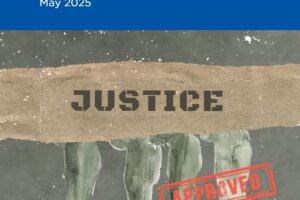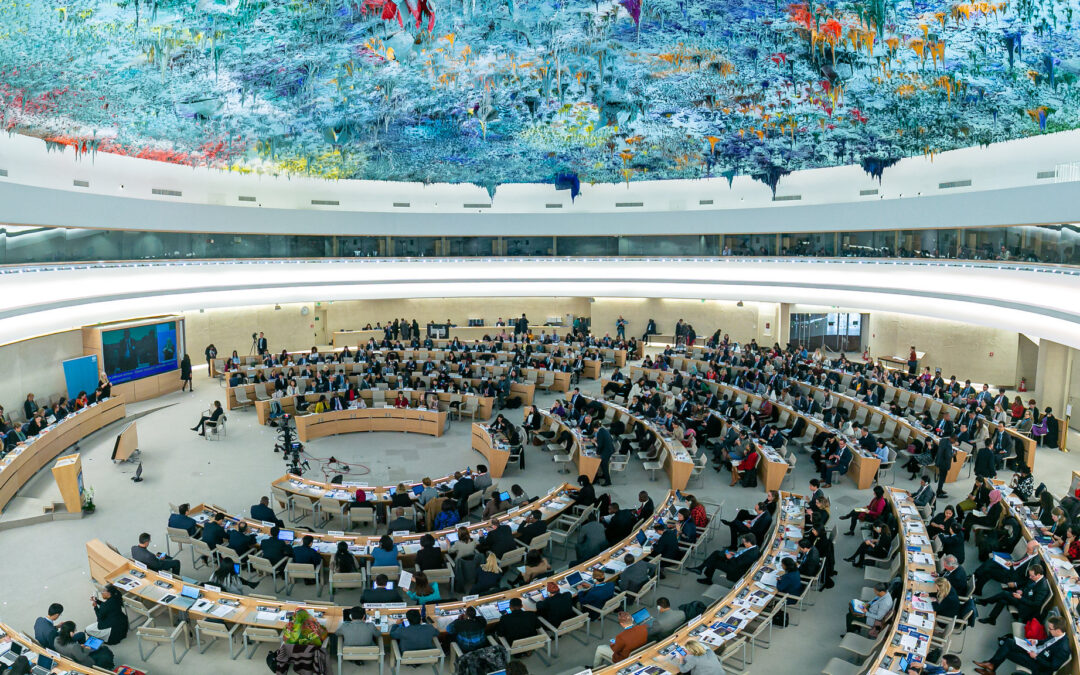

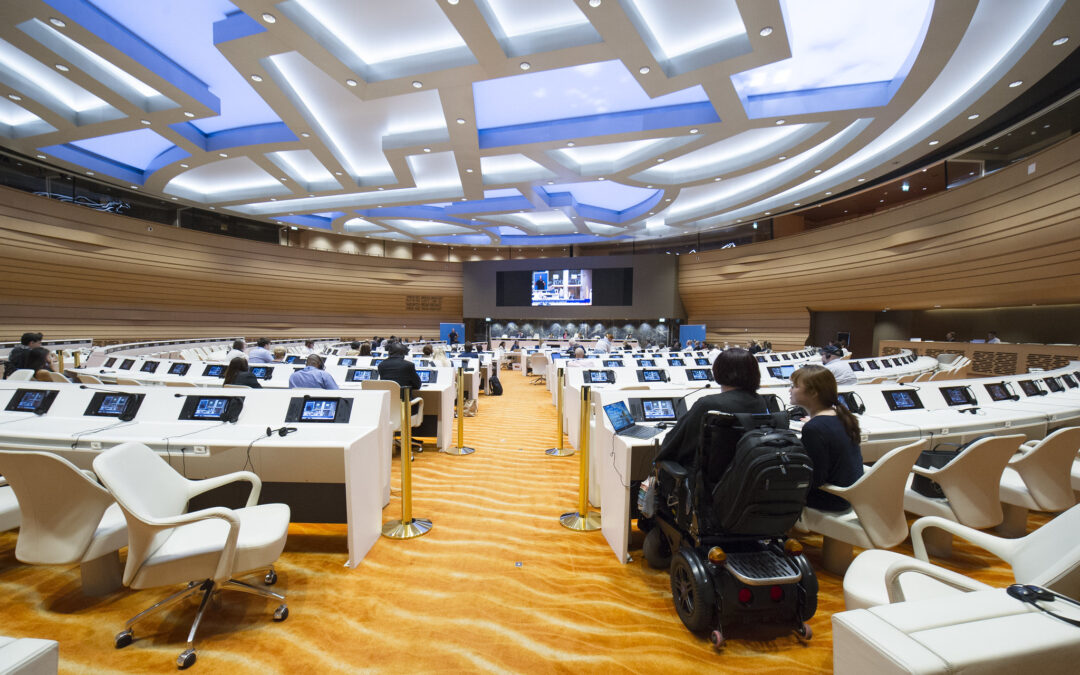
CRPD32: ICJ statement on barriers to political participation for persons with disabilities
The Committee on the Rights of Persons with Disabilities 32nd Session Day of General Discussion The International Commission of Jurists’ statement on the participation of persons with disabilities in public office during the Committee on the Rights of Persons with...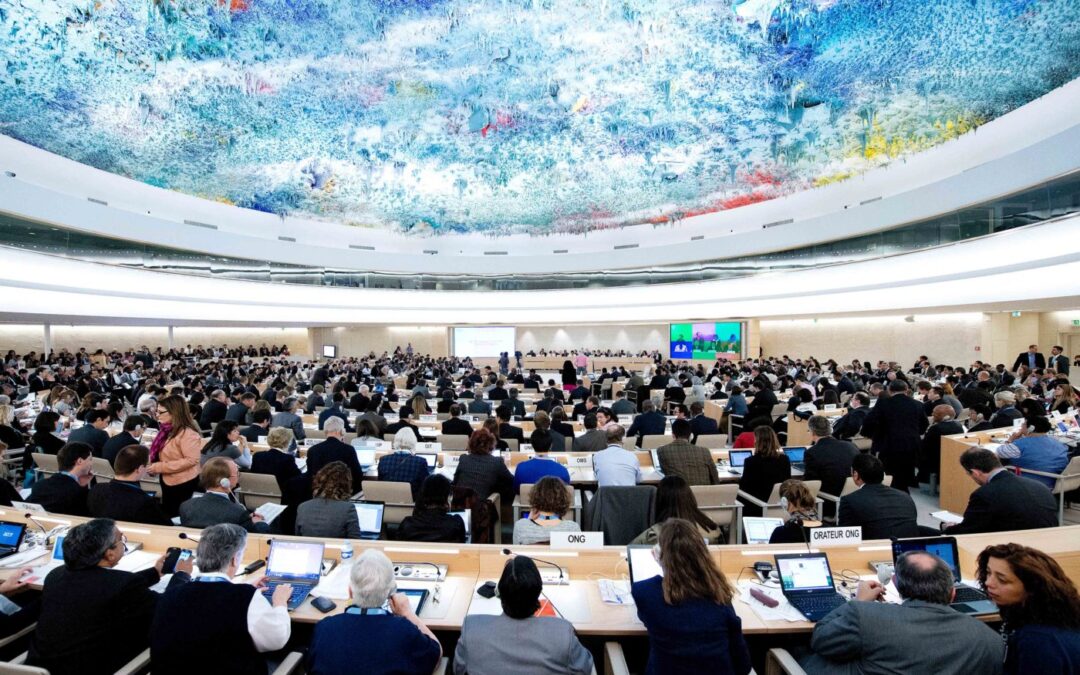
UN Human Rights Council faces growing strains, but makes progress on racial justice and law enforcement, and addresses the situation in Eritrea
As the UN Human Rights Council concludes its 56th session, the ICJ warns that political deadlock and waning commitment by States to long agreed human rights objectives continues to limit the Council’s effectiveness in fulfilling its mandate to protect and promote human rights around the world.

Principles and Guidelines on Human Rights and Public Health Emergencies featured in new documentary film and blog symposium
Today, the short documentary film titled “Beyond Siracusa: Human Rights in Times of Public Health Emergencies,” will be launched. The film looks at the 2023 Principles and Guidelines on Human Rights Public Health (PHE Principles), developed by experts through a process led by the International Commission of Jurists and the Global Health Consortium (GHLC). The film looks at the underlying motivation for the PHE Principles, including the imperatives for action compelled by the onslaught of the COVID 19 Pandemic, as well as the drafting process itself.
VIDEO: Beyond Siracusa: Human Rights in Times of Public Health Emergencies
“One of the important lessons learned from the COVID-19 experience is that a unified, cohesive elaboration of international law and standards prescribing how States should and should not respond to pandemics was lacking and sorely needed,” said Tim Fish Hodgson, ICJ’s Senior Legal Adviser. “The 1984 Siracusa Principles, also developed by the ICJ, elaborated a framework for a human rights-compliant response to emergency measures. The PHE Principles build on Siracusa and affirm the proactive measures that are required to secure human rights in times of public health emergency.”
The Principles, which address such questions as access to vaccines, lockdowns, and fortification of public health systems to prepare for future pandemics, expressly identify a number of responsibilities of States in the context of public health emergencies, including that they act in furtherance of:
- Universal enjoyment of human rights;
- International solidarity;
- The Rule of law;
- Equality and non-discrimination;
- Human rights protection from the conduct of non-State actors;
- Transparency and access to information;
- Meaningful and effective participation; and
- Accountability and access to justice for those harmed by human rights violations and abuses.
Elaborated by international experts through a three-year consultative process, and to date endorsed by over 50 leading experts, the Principles also provide a foundation upon which further human rights standards in public health emergency prevention, preparedness, response, and recovery may emerge and evolve. In the spirit of such evolution, the ICJ co-convened a blog symposium between October and December 2023 on the Petrie-Flom Center for Health Law Policy, Biotechnology, and Bioethics at Harvard Law School’s Bill of Health, which will culminate with a webinar on 18 January 2024.
“The Principles aim to be more than static guidelines. Their essence thrives through interpretation, application, and discourse among communities of scholars, advocates, practitioners and human rights defenders,” said Roojin Habibi, a law professor at the University of Ottawa and a member of GHLC. “We extend an open invitation to all interested parties to collaborate on the implementation of these Principles, from local to global settings.”
In 2024, the World Health Organization is set to continue its work in drafting a “Pandemic Treaty,” expected to culminate with the International Negotiating Body (INB) appointed by the WHO submitting its “final outcome” to the World Health Assembly in May 2024. At the same time, a process is under way to amend the 2005 International Health Regulations stemming from experiences of their (non)application during COVID-19.
“It is our hope that the content of the Principles inform all processes currently under way within the WHO to develop and consolidate international law and standards,” Fish Hodgson said. “We reiterate the consistent calls of civil society to ensure that the WHO’s processes are fully and meaningfully participatory, resulting in the development of a Pandemic Treaty and International Health Regulations that are grounded in human rights, providing States with clear guidance on their obligations,” he concluded.
Event
Register to join the webinar discussing the Principles on 18 January at 16.00 (CET) featuring Justice Zione Ntaba (Judge of the Malawian High Court), Alicia Ely Yamin (Harvard University), Paul Hunt (New Zealand Human Rights Commission), Kayum Ahmed (Human Rights Watch) and Luisa Cabal (UNAIDS) at this link.
Links
VIDEO: Beyond Siracusa: Human Rights in Times of Public Health Emergencies
PHE PRINCIPLES: ICJ & GHLC – Human Rights & Public Health Emergencies (2023). A one page overview of the Principles is available here: One Pager – Principles and Guidelines on HR & PHE.
SIRACUSA PRINCIPLES: The Siracusa Principles on the Limitation and Derogation Provisions in the International Covenant on Civil and Political Rights (September 1984) are available here.
SYMPOSIUM: Posts from the Blog Symposium From Principles to Practice: Human Rights and Public Health Emergencies are available here.
ICJ, Amnesty International, GI-ESCR and Human Rights Watch Draft “Pandemic Treaty” fails to comply with human rights (July 2023), available here.
ICJ, Amnesty International, GI-ESCR and Human Rights Watch Joint Public Statement: The Pandemic Treaty Zero Draft Misses The Mark On Human Rights, February 2023, available here.
For more information:
Timothy Fish Hodgson timothy.hodgson@icj.org
Roojin Habibi rhabibi@uottawa.ca
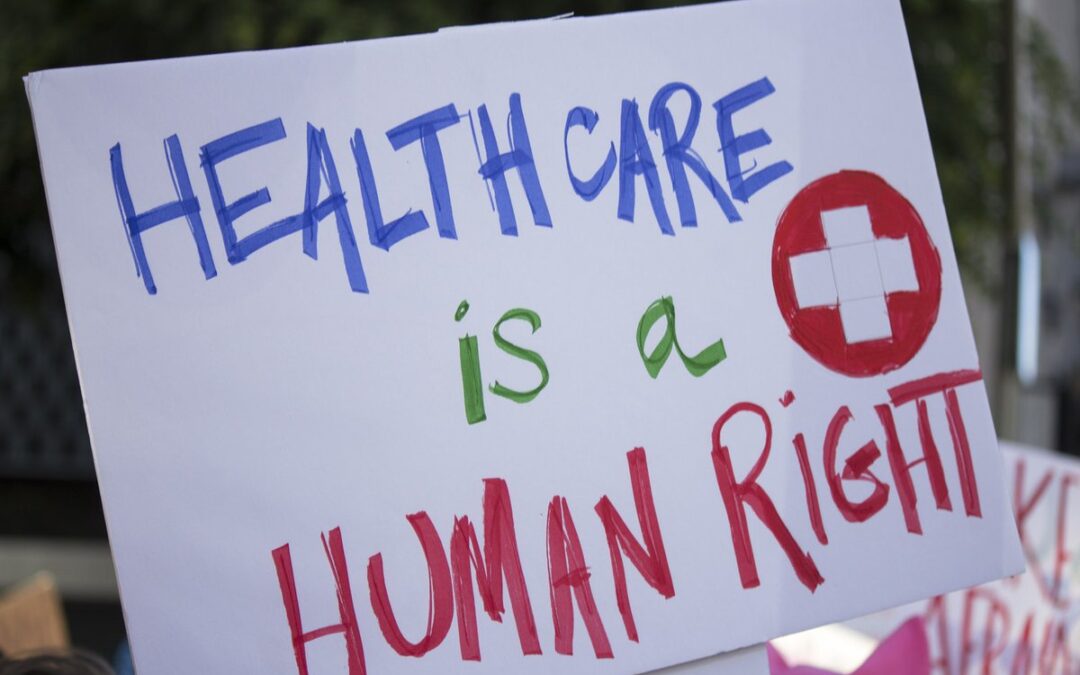
ICJ and other human rights groups: Draft “Pandemic Treaty” fails to comply with human rights
World Health Organization (WHO) member states should push for clear commitments to human rights protections in the text of a draft “pandemic treaty” being negotiated on November 6-10, four rights organizations said today. The current draft fails to enshrine core human rights standards protected under international law, most notably the right to health and the right to benefit from scientific progress, therefore risking a repeat of the tragic failures during the Covid-19 pandemic.
The WHO’s Intergovernmental Negotiating Body is meeting to debate the draft of a new international instrument on pandemic prevention, preparedness, and response with the goal of addressing the failures of the Covid-19 response and preventing another global crisis. However, rather than acting on the lessons learned from the Covid-19 pandemic, the current proposed text offers a weak framework for ensuring that countries will be accountable for maintaining a rights-compliant response to future pandemics.
This is the position taken by four international human rights groups: Amnesty International, the Global Initiative for Economic, Social and Cultural Rights, the International Commission of Jurists, and Human Rights Watch.
“Creating a new pandemic treaty could offer an opportunity to ensure that countries are equipped with proper mechanisms for cooperation and principles to prevent the level of devastation wrought by the Covid-19 pandemic, and the rights violations resulting from government responses,” said Tamaryn Nelson, legal advisor at Amnesty International. “By failing to ground the treaty in existing human rights obligations and inadequately addressing human rights concerns arising during public health emergencies, governments risk repeating history when the next global health crisis hits.”
Existing international human rights law and standards should be explicitly referenced throughout the document, recognizing that they are core to an effective and equitable pandemic response, the organizations said. It should also incorporate developments in international human rights standards reflected, for example, in principles developed by the Global Health Law Consortium and the International Commission of Jurists in the “Principles and Guidelines on Human Rights and Public Health Emergencies,” and the Civil Society Alliance’s “Human Rights Principles For a Pandemic Treaty.”
“A global health architecture that puts profit-driven considerations at the center of global health decisions exacerbated the unprecedented magnitude of illness and death from Covid-19,” said Julia Bleckner, senior health and human rights researcher at Human Rights Watch. “Certain higher-income countries effectively hoarded vaccines and blocked a proposal to share the vaccine recipe, while those in lower-income countries died waiting for a first dose. An equitable and effective response to any future pandemic should ensure states carry out their obligation to, individually and collectively, regulate private entities to prevent them from undermining human rights.”
Human rights standards clearly establish that scientific progress must be available, accessible, acceptable, and of good quality to all individuals and communities. Governments must take steps to ensure that everyone can access the applications of scientific progress without discrimination.
The new treaty should reiterate that governments are required under international human rights law to strictly monitor and regulate private actors when they are involved in financing and the delivery of healthcare, ensuring that all their operations contribute to the full realization of the right to health. But the draft fails to incorporate the human rights framework on strictly monitoring and regulating private actors in healthcare, as well as preventing any harmful impact of private actors’ involvement in healthcare on governments’ capacity to effectively respond to pandemics. For example, the new text includes that state parties should “promote collaboration with relevant stakeholders, including the private sector” without clear human rights guardrails.
The Covid-19 pandemic was both a health and human rights catastrophe. Without clear and binding commitments to human rights law and standards leading up to and during public health emergencies, the crisis gave way to a ripple effect of human rights violations and abuses. Governments enforced lockdowns, quarantines, and other restrictions in ways that often were disproportionate to the public health threat and undermined human rights. In some cases, governments weaponized public health measures to discriminate against marginalized groups and target activists and opponents.
Yet the draft treaty fails to give governments virtually any guidance on how to comply with international law and standards, requiring any restrictions of human rights in the context of such emergencies to be evidence based, legally grounded, non-discriminatory, and necessary and proportionate to meet a compelling human rights threat. To the extent that restrictions undermine full enjoyment of economic and social rights, social relief measures to ensure the protection of those rights should also be put in place.
“The fact that the current draft of the text does not even repeat well established and existing standards in regard to legality, necessity, and proportionality of response measures is as disappointing as it is confounding. The result is a treaty that does not reflect the experience of individuals throughout the world who were subjected to human rights abuses in the name of public health response,” said Timothy Fish Hodgson, senior legal advisor at the International Commission of Jurists. “It is imperative that the negotiated text explicitly includes the necessary safeguards required under international human rights law when responding to a public health threat.”
The Covid-19 pandemic underscored the need for a social safety net and the consequences of failing to substantively account for the social and commercial determinants of health. While the current draft recognizes the ways in which the Covid-19 pandemic exacerbated inequalities, it does not explicitly commit governments to effectively protect the rights that guarantee key underlying determinants of health, including social security, food, education, housing, water, and sanitation, without discrimination.
In order to genuinely achieve its commitments to the principle of equity “at the centre of pandemic prevention, preparedness and response,” the Intergovernmental Negotiating Body should include in the draft explicit language on the obligations to proactively protect the rights of persons from marginalized groups, and to emphasize the human rights protections against discrimination.
“The global health response to the Covid-19 pandemic prioritized profit over the lives of the world’s most marginalized,” Rossella De Falco, programme officer on the right to health at the Global Initiative for Economic, Social and Cultural Rights said. “If countries are serious about preventing the inequities and loss of the Covid-19 pandemic, they will commit to a rights-aligned agreement for future pandemics.”
Please note, the text above is a shortened version of this full statement, adapted by the ICJ for its website.
For more information:
For the International Commission of Jurists, Timothy Fish Hodgson: +27-82-8719-905; or timothy.hodgson@icj.org.
For Human Rights Watch, in Nairobi, Julia Bleckner: +1-917-890-4195; or blecknj@hrw.org.
For the Global Initiative for Economic, Social and Cultural Rights: +39-393-819-5332 or rossella@gi-escr.org
For Amnesty International, Tamaryn Nelson: tamaryn.nelson@amnesty.org
Background:
Previous joint statement of ICJ, AI, GI-ESCR and HRW (24 February 2023) available here.
ICJ and Global Health Law Consortium “Principles and Guidelines on Human Rights in Public Health Emergencies” available here.
Civil Society Alliance for Human Rights in the Pandemic Treaty “Human Rights Principles for a Pandemic Treaty” (11 April 2022) available here.
Civil Society Alliance for Human Rights in the Pandemic Treaty “Why States Must Ensure Full, Meaningful and Effective Civil Society Participation in developing a Pandemic Treaty” (11 April 2022), available here.
Download the full statement

